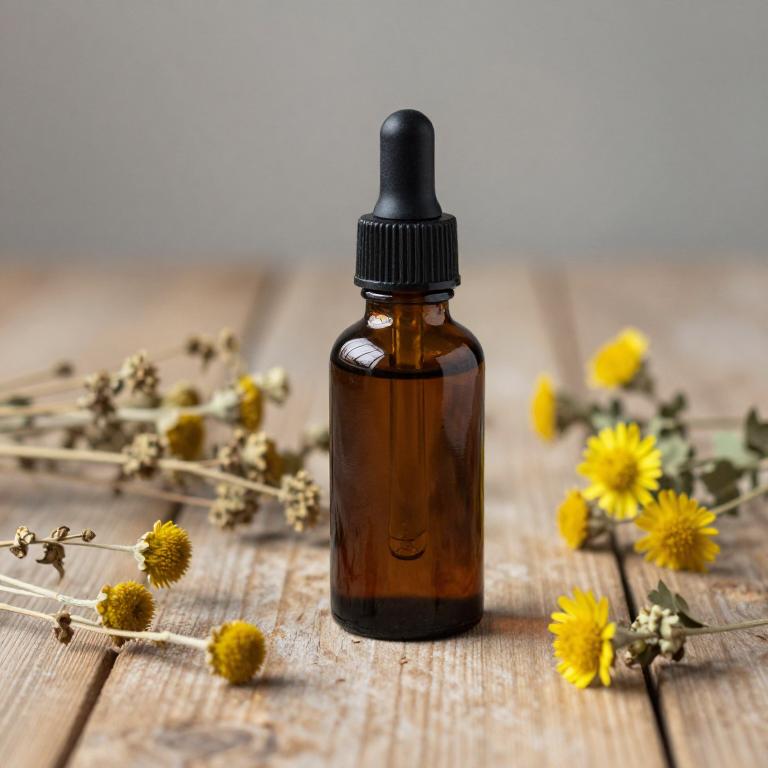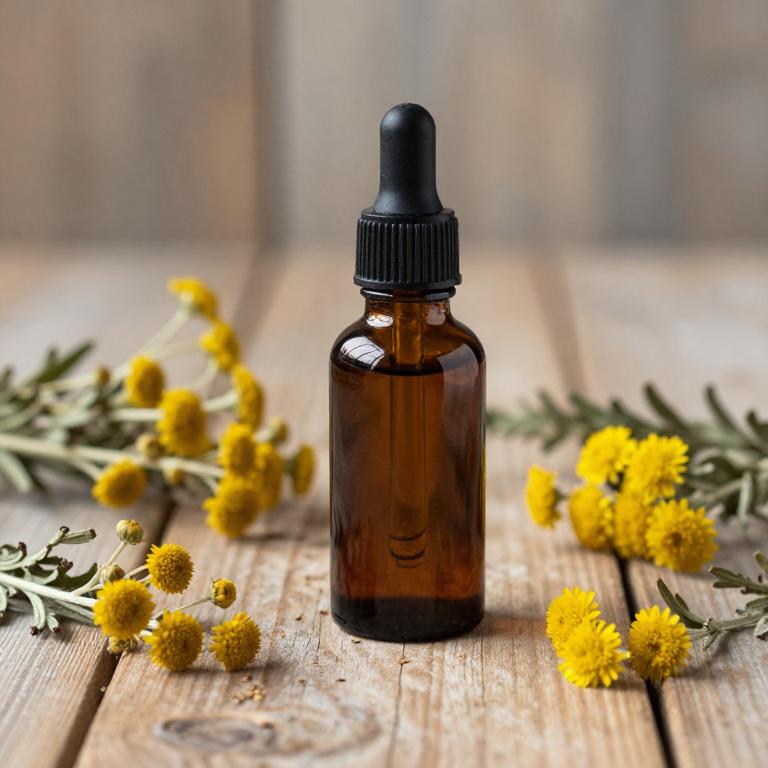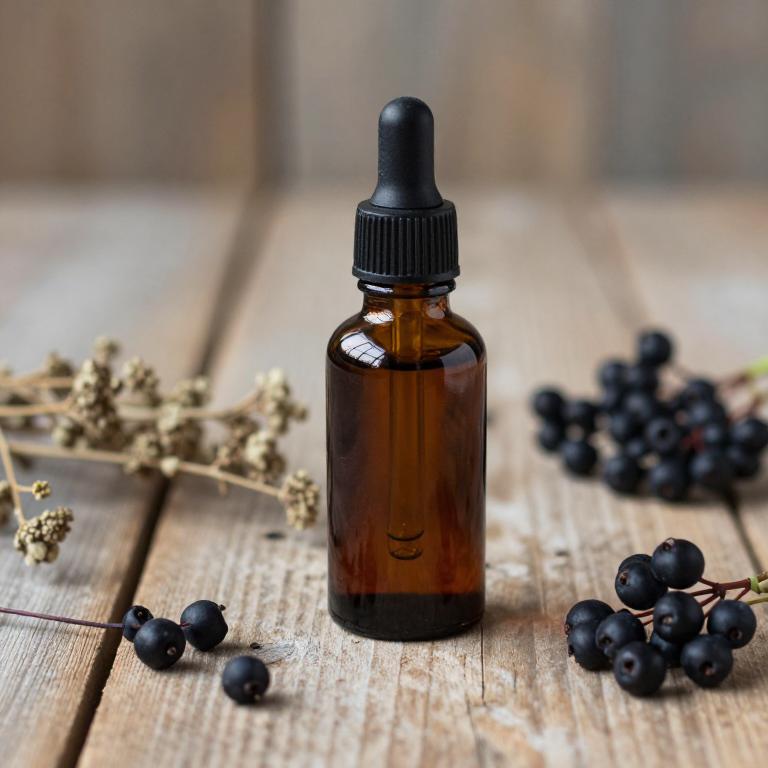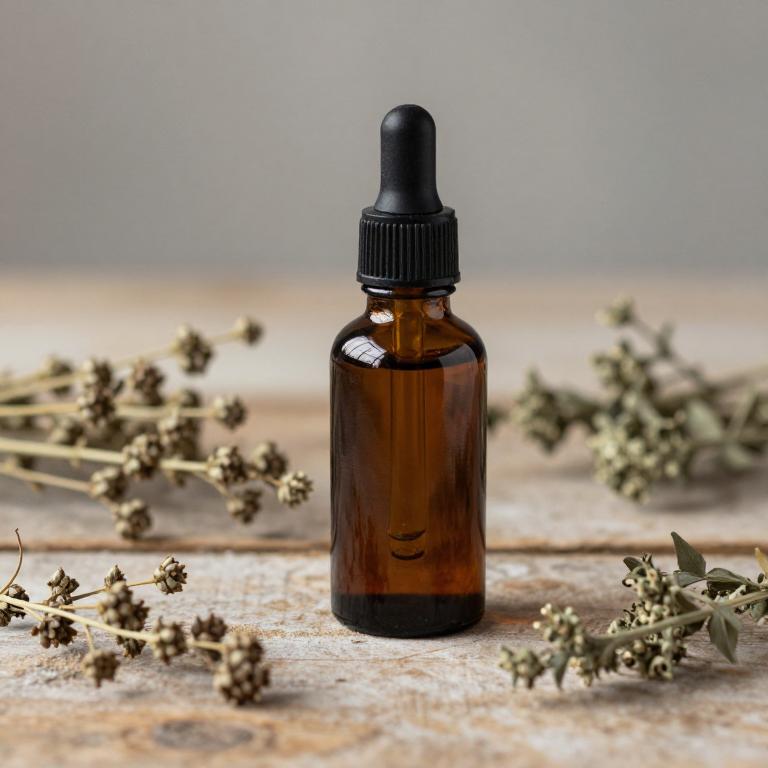10 Best Herbal Tinctures For Allergies

Herbal tinctures have gained popularity as natural remedies for managing allergy symptoms, offering an alternative to conventional antihistamines.
These tinctures are typically made by soaking herbs in alcohol or glycerin to extract their active compounds, which can include anti-inflammatory and antihistamine properties. Commonly used herbs in allergy tinctures include echinacea, nettle, and butterbur, each known for their potential to reduce allergic reactions and support immune function. While some people find relief from using these tinctures, their effectiveness can vary, and it is important to consult with a healthcare provider before starting any new treatment.
As with any supplement, proper dosage and quality of the product are essential to ensure safety and efficacy.
Table of Contents
- 1. Stinging nettle (Urtica dioica)
- 2. Echinacea (Echinacea purpurea)
- 3. St. john's wort (Hypericum perforatum)
- 4. German chamomile (Chamomilla recutita)
- 5. Wormwood (Artemisia vulgaris)
- 6. Black elderberry (Sambucus nigra)
- 7. Plantain (Plantago lanceolata)
- 8. Rosemary (Rosmarinus officinalis)
- 9. Salvia (Salvia officinalis)
- 10. Yarrow (Achillea millefolium)
1. Stinging nettle (Urtica dioica)

Urtica dioica, commonly known as stinging nettle, is a plant that has been used for centuries in herbal medicine for its potential health benefits, including relief from allergy symptoms.
Urtica dioica herbal tinctures are made by soaking the dried leaves and stems in alcohol, creating a concentrated liquid that can be taken orally. These tinctures are believed to help reduce histamine levels in the body, which may alleviate symptoms such as sneezing, itching, and runny nose associated with allergies. Some studies suggest that stinging nettle may act as a natural antihistamine and support the immune system.
However, it is important to consult with a healthcare professional before using urtica dioica tinctures, especially for individuals with existing health conditions or those taking other medications.
2. Echinacea (Echinacea purpurea)

Echinacea purpurea, commonly known as purple coneflower, is a popular herbal remedy often used in tincture form to support immune health and potentially alleviate allergy symptoms.
These tinctures are typically made by soaking the dried roots or flowers of the plant in alcohol, which helps extract its active compounds, such as alkamides, caffeic acid derivatives, and polysaccharides. Some studies suggest that echinacea may help reduce the severity and duration of allergic reactions by modulating the immune response and decreasing inflammation. However, while anecdotal evidence supports its use, scientific research on its effectiveness for allergies remains inconclusive, and it is generally recommended as a complementary rather than a primary treatment.
As with any herbal supplement, it is advisable to consult a healthcare professional before use, especially for individuals with known allergies or on medication.
3. St. john's wort (Hypericum perforatum)

Hypericum perforatum, commonly known as St. John's wort, is traditionally used in herbal tinctures for its potential anti-inflammatory and antihistamine properties, which may help alleviate allergy symptoms.
These tinctures are typically prepared by soaking the dried plant material in alcohol, allowing the active compounds such as hypericin and hyperforin to be extracted. While some studies suggest that St. John's wort may reduce histamine release, its effectiveness for allergies is not yet fully supported by robust clinical trials. It is important to note that St. John's wort can interact with various medications, including antidepressants and birth control, so consulting a healthcare provider before use is essential.
As an alternative or complementary therapy, hypericum perforatum tinctures may be considered under professional guidance for managing mild allergy symptoms.
4. German chamomile (Chamomilla recutita)

Chamomilla recutita, commonly known as German chamomile, has been traditionally used for its calming and anti-inflammatory properties, making it a popular choice for herbal tinctures aimed at alleviating allergy symptoms.
These tinctures are typically prepared by extracting the flower heads in alcohol, preserving the active compounds such as flavonoids and essential oils that contribute to their therapeutic effects. Chamomile tinctures may help reduce inflammation in the respiratory tract and ease symptoms like sneezing, itching, and congestion associated with seasonal allergies. Due to its mild nature, it is often considered a safe alternative for those seeking natural remedies, though it is advisable to consult a healthcare provider before use, especially for individuals with known allergies or sensitivities.
Overall, Chamomilla recutita tinctures offer a gentle, holistic approach to managing allergic reactions and supporting immune health.
5. Wormwood (Artemisia vulgaris)

Artemisia vulgaris, commonly known as wormwood, is a flowering plant that has been traditionally used in herbal medicine for its potential health benefits.
Herbal tinctures made from Artemisia vulgaris are often used to support the body's natural defenses and may help alleviate symptoms associated with allergies. These tinctures are typically prepared by soaking the dried plant material in alcohol, allowing the active compounds to be extracted for medicinal use. Some studies suggest that Artemisia vulgaris may have anti-inflammatory and antihistamine properties, which could make it a useful complementary therapy for allergy relief.
However, it is important to consult with a healthcare professional before using these tinctures, as they may interact with other medications or have side effects.
6. Black elderberry (Sambucus nigra)

Sambucus nigra, commonly known as European elderberry, has been traditionally used in herbal medicine for its potential immune-boosting properties.
Herbal tinctures made from Sambucus nigra berries are often used to support the body's defenses, particularly during cold and flu seasons. Some studies suggest that elderberry may help reduce the severity and duration of allergy symptoms due to its high antioxidant and anti-inflammatory content. However, it is important to note that while elderberry tinctures are generally considered safe when used appropriately, they should not replace prescribed allergy treatments.
As with any herbal remedy, it is advisable to consult with a healthcare provider before incorporating Sambucus nigra tinctures into your wellness routine.
7. Plantain (Plantago lanceolata)

Plantago lanceolata, commonly known as plantain, has been traditionally used for its medicinal properties, and its herbal tinctures are gaining attention for their potential to alleviate allergy symptoms.
The tinctures are made by soaking the dried leaves of the plant in alcohol, which helps extract its active compounds such as mucilage, flavonoids, and antioxidants. These compounds are believed to support the immune system and reduce inflammation, which may help ease allergic reactions. Some studies suggest that plantain tinctures can help soothe respiratory symptoms like sneezing and congestion associated with allergies.
However, while preliminary research is promising, more clinical studies are needed to fully understand its efficacy and safety for allergy treatment.
8. Rosemary (Rosmarinus officinalis)

Rosmarinus officinalis, commonly known as rosemary, is a versatile herb that has been traditionally used for its medicinal properties, including its potential benefits for allergy relief.
Rosemary tinctures are concentrated herbal extracts that can be taken orally or applied topically to help reduce inflammation and support immune function. These tinctures contain antioxidants and anti-inflammatory compounds that may help alleviate symptoms associated with seasonal allergies, such as nasal congestion and skin irritation. When used as part of a holistic approach, rosemary tinctures may complement conventional allergy treatments by promoting clearer breathing and reducing allergic reactions.
However, it is important to consult with a healthcare professional before incorporating rosemary tinctures into your allergy management routine, especially if you are pregnant, nursing, or taking other medications.
9. Salvia (Salvia officinalis)

Salvia officinalis, commonly known as sage, has been traditionally used in herbal medicine for its potential health benefits, including its use in tinctures for allergy relief.
Sage tinctures are often made by soaking the dried leaves in alcohol to extract their active compounds, such as flavonoids and essential oils, which are believed to have anti-inflammatory and antihistamine properties. These properties may help reduce symptoms of seasonal allergies by supporting the body's natural response to allergens. Some studies suggest that sage may help regulate immune responses and reduce histamine release, making it a promising natural remedy for mild allergic reactions.
However, it is important to consult with a healthcare professional before using sage tinctures, especially for those with existing medical conditions or who are taking other medications.
10. Yarrow (Achillea millefolium)

Achillea millefolium, commonly known as yarrow, has been traditionally used in herbal medicine for its potential benefits in managing allergy symptoms.
Yarrow tinctures are often prepared using alcohol as a solvent to extract the plant's active compounds, such as flavonoids and volatile oils, which may have anti-inflammatory and antihistamine properties. These tinctures are typically taken orally in small doses to support the body's natural response to allergens and reduce symptoms like sneezing, itching, and nasal congestion. While some studies suggest that yarrow may help alleviate allergic reactions, it is important to consult with a healthcare professional before use, especially for individuals with known allergies or those taking other medications.
Overall, Achillea millefolium tinctures can be a complementary approach for allergy management, though they should not replace conventional treatments without medical guidance.